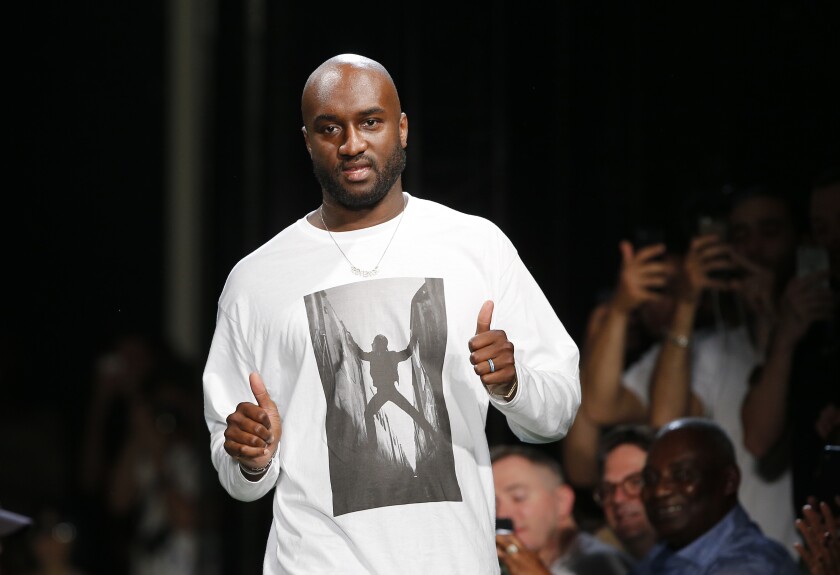A large cardboard box covered in Chinese customs labels sits in the attic of Jack Lee’s parents’ home in the Roscoe Village neighborhood on Chicago’s North Side.
The lanky teenager slices into the box and produces a pair of black basketball shorts adorned with white bolts of lightning. He smiles as he traces the mesh material with his fingers.
Lee is the founder of the streetwear brand Snker Method. He is one of many high schoolers in Chicago — most of them boys — who have started their own clothing companies in recent years, selling everything from hoodies to ski masks. The teens operate out of homes in all corners of the city and its suburbs, mostly selling to their high school peers, but also shipping clothes to young people as far away as New Jersey or California.
Lee’s goal is to make a million dollars in sales and eventually get hired at Nike.
“I want to make a mark on the world.”
Lee, the budding businessman, sketches his own designs before he sends them to his manufacturers in China. Shipping costs are a nightmare, but Lee says it’s still cheaper than manufacturing on American soil.
He puts the lightning bolt shorts up on his website for $60, then immediately marks them down to $35 — a sales trick he says he doesn’t like to tell people about.
Over on the South Side, designer Jamari Jackson is selling his t-shirts for $15.
Jackson has set up a pop-up shop outside Kenwood Academy High School where he is a senior. Kanye West’s “Good Morning” blares from a small speaker as seniors mill around the folding table Jackson set up, signing each other’s new t-shirts in rainbow-colored markers.
Once class lets out, customers flood Jackson’s pop-up. One kid calls his mom to ask permission to buy one of the shirts — a white tee with the words “See No Evil” written in faded black letters on the front.
Two clothing designers who also go to Kenwood show up to check out the competition.
Keyon Hackle and Jacob Hunter, who run a brand named CLRVNT, did a recent pop-up of their own, where they gave out a bunch of free clothes to students. Several months ago, the teens also gave out a bunch of free samples to their teachers, who wore their CLRVNT swag to school.
“We’re only in our first year and we’ve already generated about a quarter million in sales,” Hackle says. “So I can see us on that path to making millions of dollars.”
Aside from Hackle and Hunter, Jackson can name at least five other streetwear brand owners who go to Kenwood. They have a little bit of a rivalry going on.
“At the end of the day, it is a market, so there’s always naturally going to be that competition,” Jackson says. “But we kind of work around each other.”
While this friendly rivalry drives Jackson, brand owner Tevence Smith over on the West Side says he’s in the streetwear market to create art.
Smith runs a brand named Oswalt. His earliest designs were heavy with lightning bolts and clouds, inspired by the Greek God Zeus.
But Smith says his clothes also tell the story of the Black community in Austin, the West Side neighborhood he calls home.
“Clothes mean a lot to us,” Smith says. “Whether it’s the way you tie your shoes, whether it’s the way you wear your pants. Clothes [are] a way to express yourself, a way to be free.”
Free from the problems plaguing his people, he says, like gun violence and racism.
The teen looks up to Virgil Abloh, a Black designer from Rockford, Illinois, who made a name for himself by melding streetwear with luxury fashion as the artistic director of menswear for Louis Vuitton.

Fashion designer Virgil Abloh gives a thumbs up after the presentation of Off-White Men’s Spring-Summer 2019 collection in Paris. Abloh, a leading fashion executive hailed as the Karl Lagerfeld of his generation, died in 2021 at the age of 41. Chicago students who have started their own clothing brands say Abloh is an inspiration.
Thibault Camus/AP
“A lot of the clothes he makes are beyond clothes,” Smith says. “It’s art pieces. And that’s how I like to look at my clothes as well.”
Abloh passed away in 2021. But Smith sometimes looks up videos of his fashion shows on YouTube for inspiration. He dreams of one day hosting his own runway in Paris like Abloh did.
“To know someone from a small town like Rockford can make it gives me hope,” Smith says. “It helps me keep pushing forward.”
Anna Savchenko is a reporter for WBEZ. You can reach her at asavchenko@wbez.org.








